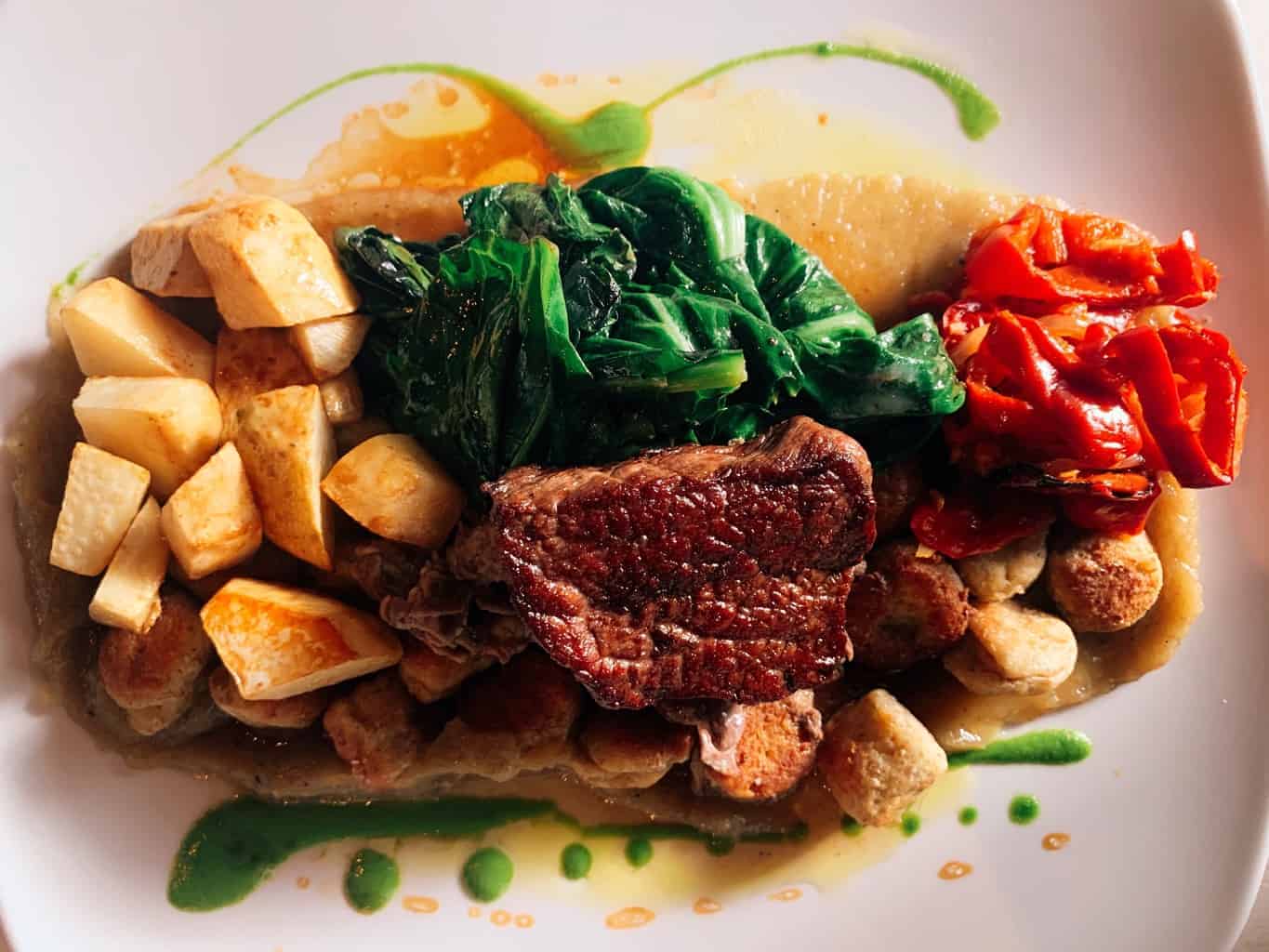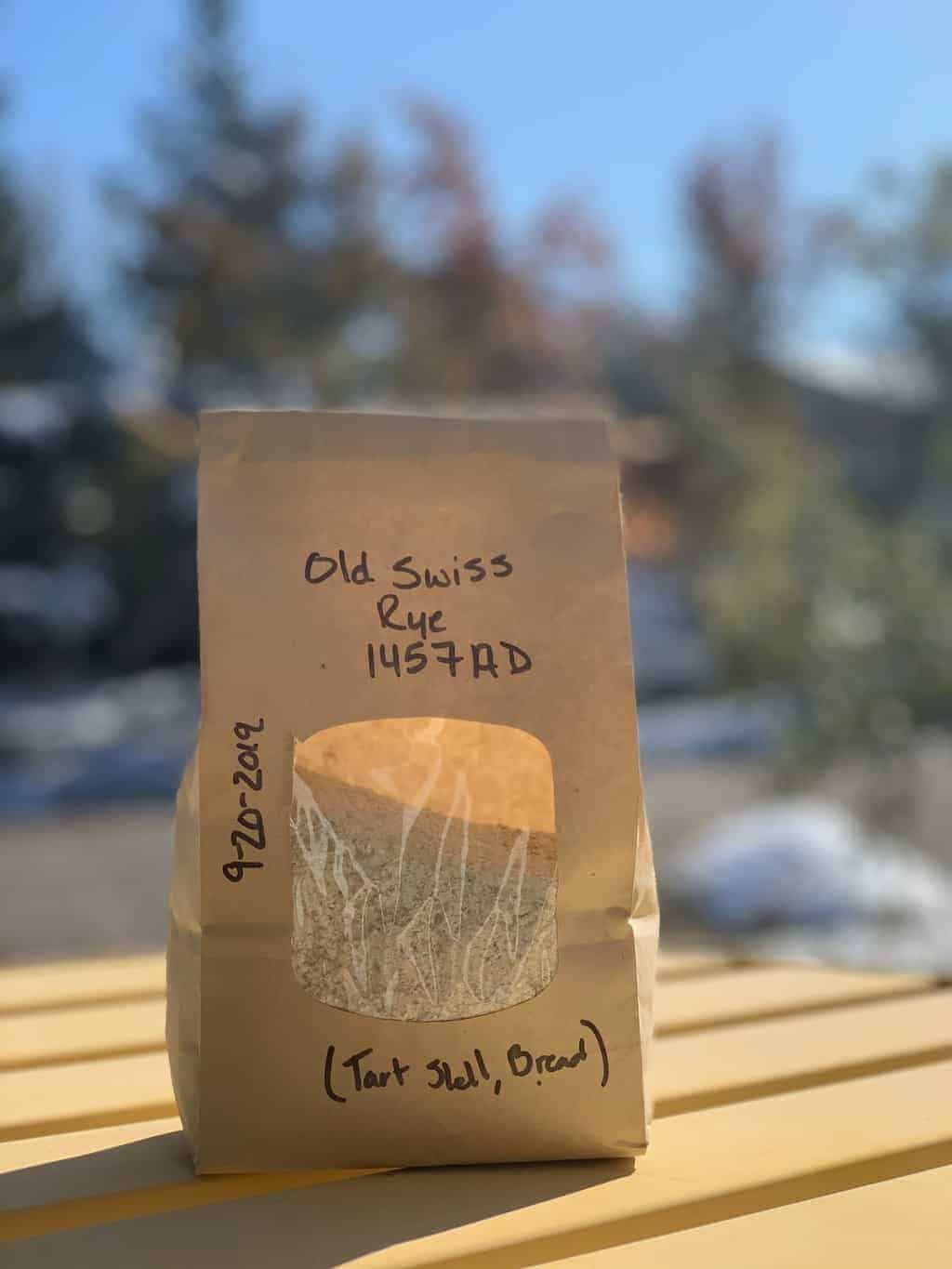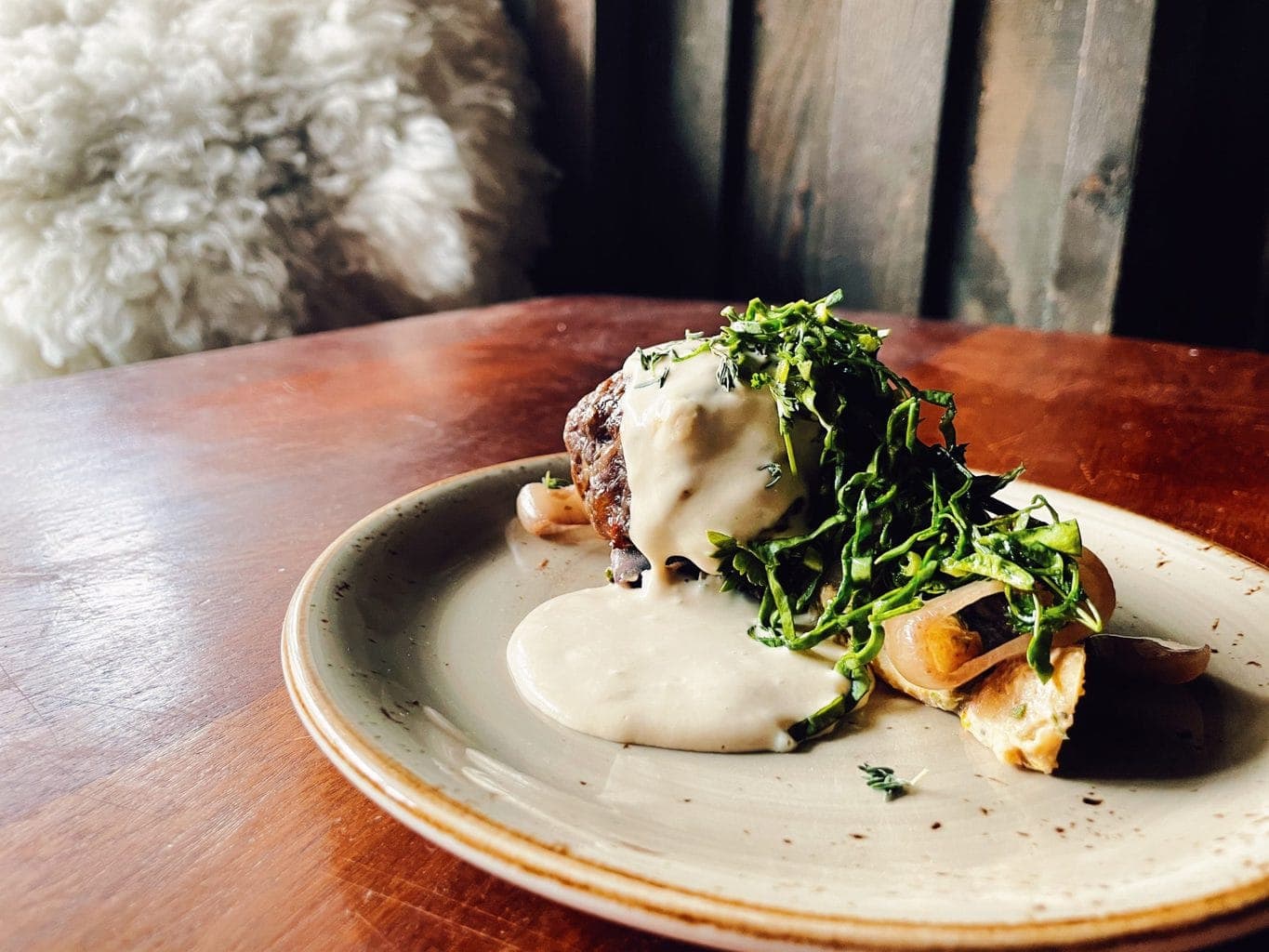
The season of snow is upon us. This can conjure a Nordic frame of mind. As cooks and farmers, the Nordic countries remind us of herring, cloudberries, reindeer and an abundance of mushrooms. We don’t raise any of the above at Black Cat Organic Farm (although we work with foragers to score mushrooms).
But we do cultivate a staple across Norway, Sweden, Finland, Denmark and Iceland: rye. We grow a variety called Wallis, which comes from Switzerland’s mountainous Valais canton, the home of the Matterhorn.
Why Do We Grow Rye?

Rye is the softest of our grains. It offers a fraction of the gluten found in wheat, and gluten is essential for bread’s lift. When carbon dioxide from yeast presses against gluten, it forms networks of strands that serve as scaffolding for wheat to climb and stay put.
One-hundred-percent rye isn’t awesome for bread. But low-gluten flour is ideal for things like dumplings, biscuits and pie crusts. Gluten stiffens wheat, but “stiff” is regrettable in a tart crust meant for a quiche. What we desire is flaky, and on that front, rye delivers smashingly.
Even better, after a year of experimenting in the kitchens with our homegrown rye, we believe rye flour offers much more flavor than wheat. A recent side-by-side taste test of tart shells filled with peach compote and honey cream produced unanimous results: Everybody much preferred the rye tart.
Quick note: Due to so many rye breads incorporating caraway seeds into the dough, it’s no surprise that many people associate rye with that unique flavor encountered in a piece of toast beside a fried egg. That flavor is the caraway, not the rye.
What To Cook With Our Rye Flour?
In the fields, rye performs admirably. It thrives with wet springs and long dry spells in August. In other words, it prefers the 2019 Boulder County growing season. Our harvest this summer was fantastic.We sell our milled Wallis rye at the Farmers’ Market every Saturday up until Thanksgiving. Swing by, snag a bag, and give some recipes a whirl.
Rye choux pastry is extraordinary. Simply replace the white flour with rye. Rye biscuits rock. Rye dumplings? Absolutely.
And do try a rye pastry crust.


Boulder Farmers’ Market
Saturday 8am – 2pm
Weekly Harvest 11/9/2019
Veggies
Spinach · Kale · Asian collards · Osaka purple · Arugula · Chard · Carrots · Beets · Carrots · Potatoes · Hakuri turnips · Hinona kabu turnips · Parsnips · Escarole
Grains
Sonoran White wheat flour · Khorasan wheat flour · Wallis rye wheat flour
Black Cat Heritage-Breed Pork & Lamb Raised on Organic Pastures
All cuts of lamb · All cuts of pork · Pork skin · Pork jowls
